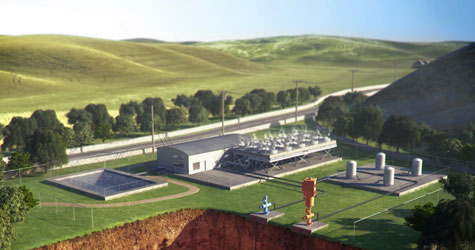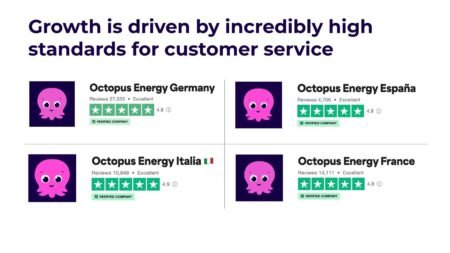Despite the relatively low-cost projections of increasing the level of support to five Renewables Obligation Certificates (ROCs) due to the low level of expected generation in the UK, the banding review has decided to leave support levels at two ROCs.
This may largely be due to the fact that the UK can benefit from the high levels of investment in Europe that are likely to reduce the levelized costs of geothermal power generation by half by 2020. The UK can effectively get a free ride and exploit the technological innovations; however, the result will be a delay in generation. Cost projections for geothermal developments in the UK have shown that power generation is not economically viable without the inclusion of heat in combined heat and power (CHP) plants. Although the low level of support for geothermal power may at first seem to be stifling growth in the industry, the level of support for heat may offer an alternative focus for the industry and a more economical method of reducing emissions for the government.
A detailed look shows that, despite the low resource temperatures in the UK, around 9GW of baseload renewable electricity and 100GW of direct heat could be exploited with current technologies. This equates to nearly 20% of the UK’s average electricity generation capacity requirement and around twice as much as the UK’s space heating requirements. Development of deep geothermal power plants and CHP plants is likely to remain close to zero, with planned developments now being scrapped alongside years of investment in the wake of the banding review and inadequate support. However, the required level of support for direct heat is considerably lower than that required for generation and it is supported in another way. Since the introduction of the Renewable Heat Incentive (RHI) in November 2011, which pays fixed amounts per unit of heat supplied, the deep geothermal heat industry is already starting to develop.
It may be surprising to hear that, in the Department of Energy and Climate Change 2050 Pathways Analysis, the government’s own forecast for deep geothermal power generation in the UK is that there will be 1-5GW of installed generation capacity by 2030, while renewable heat has been largely ignored. The banding review’s decision indicates that, at present, the best use of the UK’s geothermal heat resources is to supply district heating with direct heat, while the deep geothermal power plants are now unlikely to be developed before 2020. In addition, deep geothermal power will almost certainly be imported from Iceland through an interconnector in a more economical way than domestic generation is currently able to provide. The low level of support for geothermal power generation could be a precursor to a slightly elevated level of support for heat. In the nascent wave and tidal power industry, the UK is supporting the technology at a level of five ROCs in Scotland and two ROCs in the rest of the UK.
This is part of a drive to make Scotland the world leader in the technology. Expertise for deep geothermal power generation exists outside of the UK and clearly does not merit the same level of support as Scottish tidal power, but deep geothermal heat technology is still in its early stages and Greg Barker, the UK minister for energy and climate change, has been championing British companies to promote the industry. Support of the home industry will become vital if expertise for geothermal heat is to be exported; while geothermal power generation in the UK is unlikely to develop until after 2020, deep geothermal heat markets hold the promise of development.
A consultation period for the RHI is due to end in September, when deep geothermal heat will be given a separate tariff to ground source heat pumps. The current tariff stands at 3.4p/kWh of heat, but it is hoped that this will increase to around 5p/kWh. However, whereas the deep geothermal power generation industry was reliant upon the banding review increasing support to five ROCs, deep geothermal heat is likely to develop even if the RHI support falls to 3.0p/kWh.
A fall in the RHI support seems very unlikely, and the UK’s geothermal industry will now have to focus on the promising markets for the supply of direct heat.
Copyright 2012 MarketLine
All Rights Reserved









